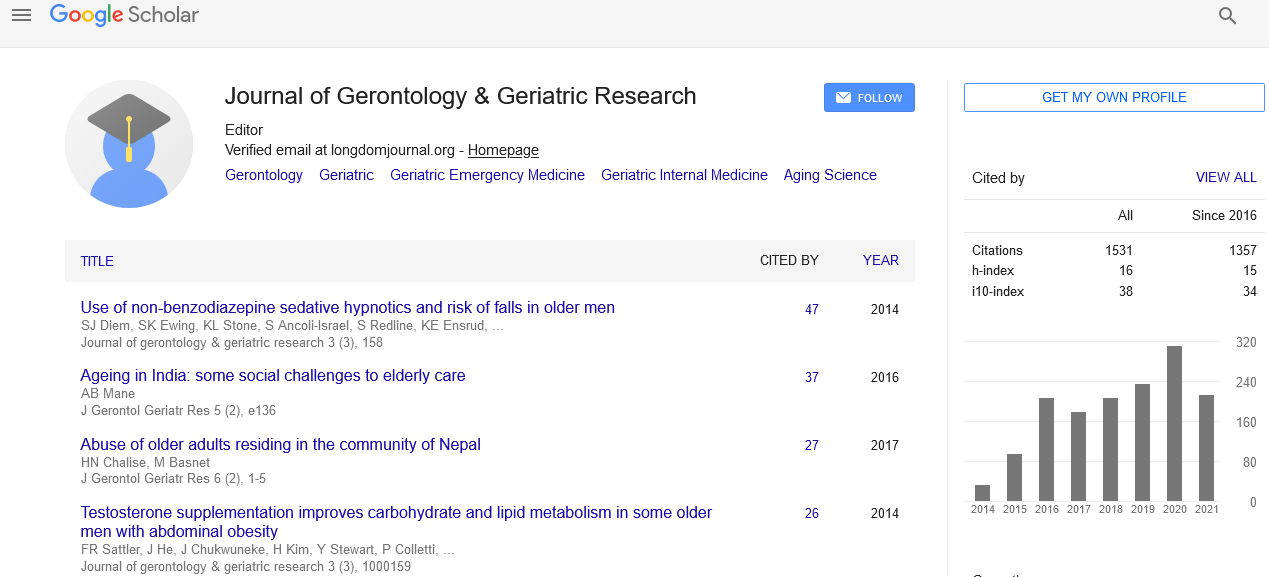PMC/PubMed Indexed Articles
Indexed In
- Open J Gate
- Genamics JournalSeek
- SafetyLit
- RefSeek
- Hamdard University
- EBSCO A-Z
- OCLC- WorldCat
- Publons
- Geneva Foundation for Medical Education and Research
- Euro Pub
- Google Scholar
Useful Links
Share This Page
Journal Flyer

Open Access Journals
- Agri and Aquaculture
- Biochemistry
- Bioinformatics & Systems Biology
- Business & Management
- Chemistry
- Clinical Sciences
- Engineering
- Food & Nutrition
- General Science
- Genetics & Molecular Biology
- Immunology & Microbiology
- Medical Sciences
- Neuroscience & Psychology
- Nursing & Health Care
- Pharmaceutical Sciences
Nursing home models and modes of service delivery: A review of outcomes
2nd International Conference on Geriatrics & Gerontology
August 24-26, 2015 Toronto, Canada
Elizabeth Andersen
The University of British Columbia, Canada
Keynote: J Gerontol Geriat Res
Abstract:
Within contemporary approaches to nursing home care, the staff composition and task allocation influence paidcaregiver experiences, and in turn affect the quality of care provided to residents. In this presentation, I will profile several different models of nursing home care with their associated modes of service delivery, andsummarize the varied reports of effectiveness of these models and modes of service delivery. While anecdotalevidence supports the Eden Alternative┬« Neighbourhood or Household models, empirical support for theconsistent assignment mode of service delivery within the Eden Neighbourhood or Household models is notextensive. More persuasive evidence supports the more advanced Eden Greenhouse model with its embeddedflexible assignment policies and self-managed teams of care aides. Flexible assignments are a design element ofthe AlzheimerÔ??s Disease and Related Disorders Society (ADARDS) model as well. Although consistentassignments for paid caregivers continue to be targeted by organizations, self-managed teams and flexibleassignments may be more ideal modes of nursing home service delivery, especially now, as the average age,frailty level, and acuity level of nursing home residents is increasing.
Biography :
Elizabeth Andersen PhD, RN, is an Assistant Professor in the School of Nursing, Faculty of Health and Social Development, University of British Columbia. Her research is focused on exploring specific components of nursing home cultural change models and their effects on residents, families, and paid caregivers. She is especially interested in the working conditions and expanding roles of more marginalized nursing home employees (care aides).
Email: elizabeth.andersen@ubc.ca


